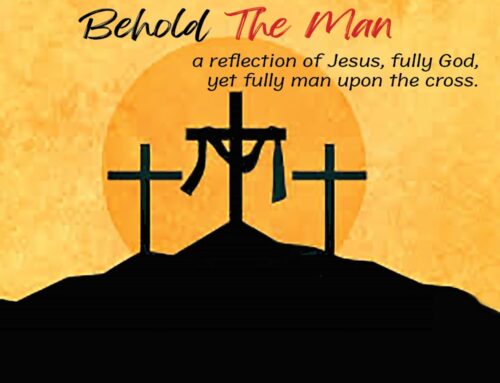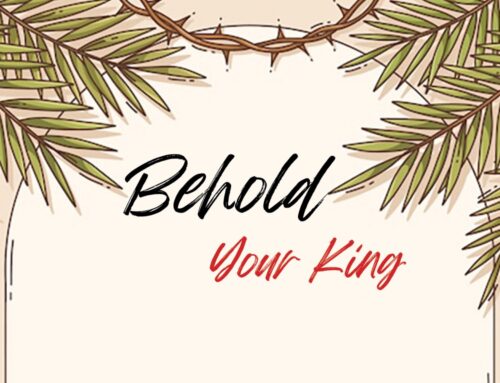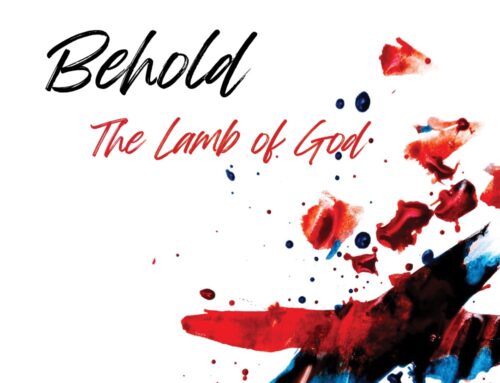This week Christians around the globe will begin the observance of Holy Week. This is a beautiful season of the year and a truly meaningful time for believers in Jesus. During the Passion week, followers of Christ take time to intentionally draw close to God by reflecting upon His love for all humanity, remembering His sacrificial death on the cross, and ultimately celebrating His victory over death. And all of this commences on Palm Sunday, the day that Christians remember and celebrate Jesus’ triumphal entry into Jerusalem. This joyful holiday is celebrated with jubilant songs, and oftentimes the distribution and even the waving of palm branches. But beyond the surface of celebratory worship and declarations of Hosanna, there is much more that we can glean about this significant, historic event that took place a mere five days before Jesus was crucified. Jesus’ triumphal entry into Jerusalem is included in all four gospels, and while there remain subtle differences in each of the writings, the personal stories recorded by the individual authors nearly mirror each other, centering on major themes of the Palm Sunday narrative beginning with….
The Donkey
Only the synoptic gospels, Matthew, Mark and Luke, begin their narrative with the account of Jesus sending two unnamed disciples into the village with specific instructions regarding retrieving a colt, literally a donkey, which they are told would be in a designated place and ready for pick up with no payment required. In addition, the disciples were instructed to respond to any questions as to why or by what right they were taking the animal, simply by replying, The Lord has need of it (Mark 11:3).
While this occurrence may appear to be insignificant, I find this event to be entirely worthy of consideration. Let’s start with the obvious, which is the revelation of Jesus’ divinity, as evidenced in His foreknowledge of the donkey that would transport Him into Jerusalem. In addition, I see the prophetic, miraculous, and amazing all working together, as the stage for Jesus’ triumphal entry was supernaturally constructed, awaiting His arrival. Every detail of this event, including the donkey, the crowds, the prophecies, and even the props (palm branches and cloaks) were all scripted and orchestrated by God.
The Praise and the Crowd
All four gospels, with slight variation, record the festive declarations of praise from the crowd.
“Hosanna to the Son of David; Blessed is the One who comes in the name of the Lord; Hosanna in the highest!”
Matthew 21:9 NASB2020
“Hosanna! Blessed is He who comes in the name of the Lord; Blessed is the coming kingdom of our father David; Hosanna in the highest!”
Mark 11:9-10 NASB2020
“Blessed is the King, the One who comes in the name of the Lord; Peace in heaven and glory in the highest!”
Luke 19:38 NASB2020
“Hosanna! Blessed is He who comes in the name of the Lord, indeed, the King of Israel!”
John 12:13 NASB2020
What I find exceptionally telling regarding the adoration from the crowd lies in the fact that they were, for the most part, completely unaware that their declarations of praise were both prophetic and ordained. And although the disciples and others who had recently joined the band of believers were included in the crowd, the majority in the mass were simply curious bystanders caught up in the anticipation and excitement of the moment. The Pharisees, also numbered in the crowd, were not praising, rather they were fuming. Bound by deception and driven by jealousy, they lift their voices above the worshippers in a futile attempt to silence the festive celebration.
“But some of the Pharisees among the crowd said, ‘Teacher, rebuke your followers for saying things like that!’”
Luke 19:39 NLT
Jesus does not cower to fear, nor does he surrender to anger, he simply responds with truth.
“Jesus replied, “I tell you, if these stop speaking, the stones will cry out!””
Luke 19:40 NASB2020
In addition, Jesus’ retort to the Pharisees was also a paraphrase of the prophetic words recorded of Him in scripture.
“From the mouths of children and infants You have ordained praise on account of Your adversaries, to silence the enemy and avenger.”
Psalms 8:2 Majority Standard Bible
The Prophecy
Only the gospels of Matthew and John include the words spoken by the prophet Zechariah.
“Rejoice, O people of Zion! Shout in triumph, O people of Jerusalem! Look, your King is coming to you. He is righteous and victorious, yet He is humble, riding on a donkey—riding on a donkey’s colt.”
Zechariah 9:9 NLT
How absolutely breathtaking it would have been to be numbered among the throng of joyful praisers on this festive day. As Jesus straddling a donkey, rides humbly into Jerusalem, the pages of scripture literally unfold, fulfilling the words of the prophet Zechariah, recorded 500 years prior. Sadly, the majority of people present that day was lacking in the knowledge of scripture, failing to see the absolute beauty and significance of this day. And while the crowd was spiritually deficient in missing the magnitude of the moment, the religious leaders and teachers of law were spiritually blind, being oblivious to the reality and revelation of the very scriptures they studied and professed.
The Humanity of Jesus
Only Luke includes the account of Jesus lamenting on the day of His triumphal ride through Jerusalem. This is actually one of only four times recorded in scripture that Jesus openly weeps, revealing His overwhelming compassion and endless mercy. As God incarnate looks out on the mass of people aligning the streets filling the holy city of Jerusalem, He is overcome with emotion.
“But as He came closer to Jerusalem and saw the city ahead, He began to weep. ‘How I wish today that you of all people would understand the way to peace. But now it is too late, and peace is hidden from your eyes.’”
Luke 19:41 & 42 NLT
The Son of God, fully human and yet completely divine, rides through Jerusalem as the people cheer and the religious leaders scoff. Amidst the cacophony of voices, Jesus can literally hear every word spoken and He is acutely aware of the intention and motive of every heart. He understands His creation is fragile, fickle and easily swayed. He knew before the creation of the world that the cheers from His fans would grossly morph to the protests of His foes by the end of the week. He longs for the people to receive the truth and know the love of His Father. Empowered by the Spirit, He foresees His disciples scattering in fear just four days from now and His heart is especially grieved knowing that His mother’s heart will also be broken. This triumphant day will set in motion the Savior’s final days on earth. Jesus is fully aware of what is to come and what He will face. But on this day, He bravely, confidently and triumphantly rides through Jerusalem.
In closing, what I find to be most compelling about the Palm Sunday narrative, more than the recorded details in Scripture, surpassing the praise of the crowds, and greater than every prophecy fulfilled, is the amazing grace of God, Who, driven by love and humility, would subject His only Son to the harshness, hostility and futility of the world. In addition, I am equally in awe of Jesus, the perfect Son Who submitted Himself to the will of His Father by obediently, willfully and resolutely facing the Passion Week that started with His triumphal entry into Jerusalem. In response to these truths, let us all intentionally prepare our hearts to remember and honor the Passion Week beginning with Palm Sunday. May we think well of this day by purposefully celebrating, thoughtfully reflecting, and gratefully offering praise to Jesus, our humble and triumphant King.
God bless you friends!
“Hosanna! Blessed is He who comes in the name of the Lord;”
Mark 11:9 NASB2020






Thank you so much Carol for these pondering words. I have read it again this Palm Sunday Morning in Awesome Wonder.
OH WHAT LOVE!